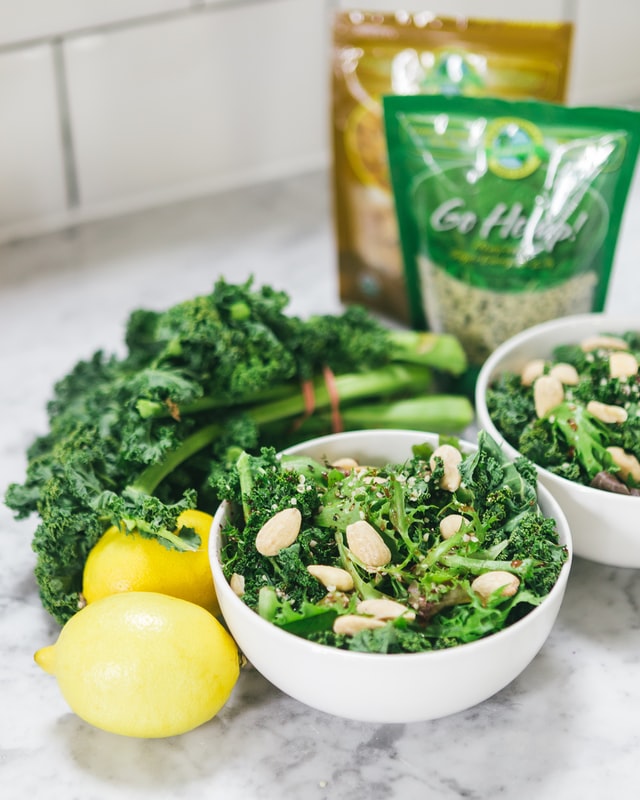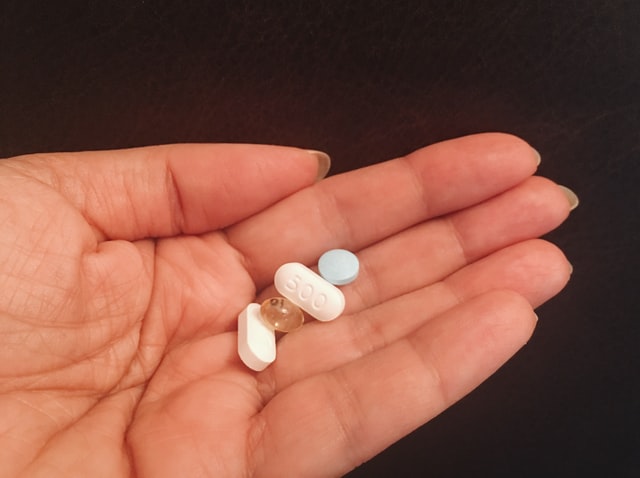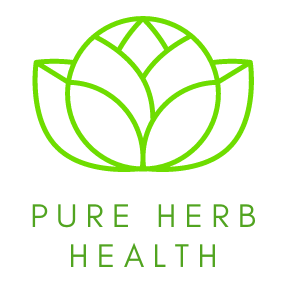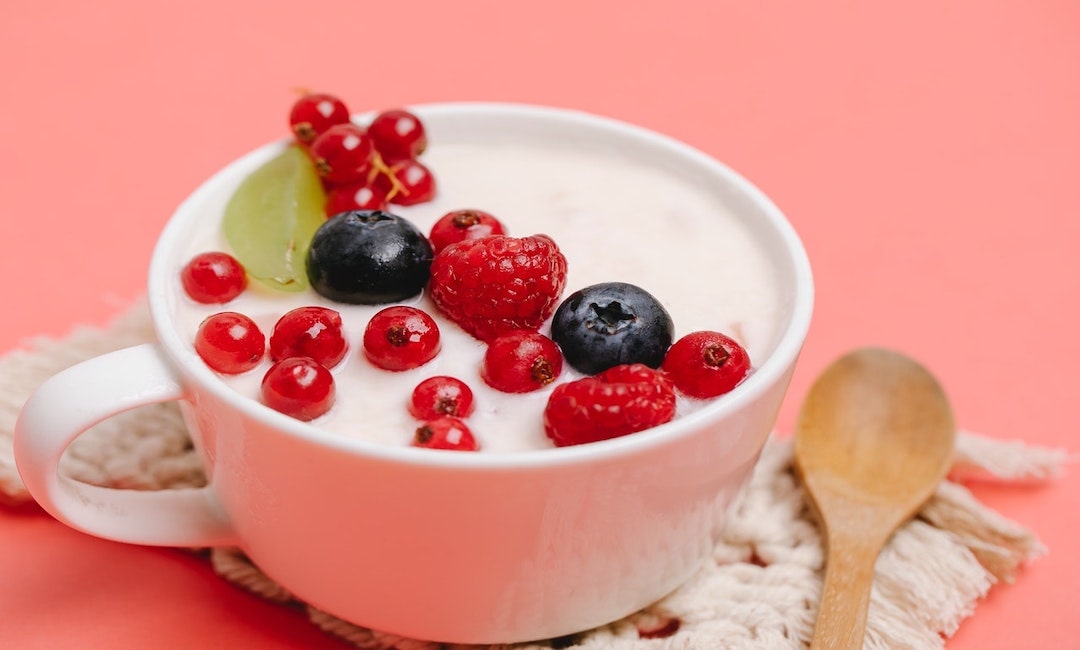VITAMIN K
Vitamin K is actually a group of compounds. They are fat soluble. Vitamin K plays a key role in blood clotting thereby preventing excessive bleeding.
The most important of these compounds are vitamin K1(phylloquinone) and vitamin K2(menaquinones). Vitamin k1 is primarily found in leafy green vegetables, while vitamin K2 is most abundant in fermented foods and some animal products.
Vitamin K2 may be absorbed better in the small intestines and distributed throughout the body and stored in the fatty tissues and the liver. Bacteria in the large intestines convert vitamin K1 in plant source that you have taken to K2.
Vitamin K is not typically taken as a dietary supplement but K1 is the main form that is formulated as a supplement for other uses.
VITAMIN K FOODS – SOURCES
The best sources of vitamin K1 are dark leafy vegetables such as
- Beet greens(cooked)
- Parsley(fresh)
- Cabbage(cooked)
- Kale (cooked)
- Spinach(raw)
- Collard greens(cooked)
- Broccoli(cooked)
The best sources of vitamin K2 are fatty meats, liver, dairy foods and eggs though this varies due to the differences in the diet of the animal, region where the animal is being reared and the producers. Examples are:
- Bacon
- Ground beef
- Pork liver
- Duck breasts
- Beef kidneys
- Chicken liver
- Egg yolk
- Blue cheese
- Soft cheeses
- Edam cheese
- Cheddar
- Whole milk
- Butter
It is worthy to note that some legumes, nuts and fruits still provide some amounts of vitamin k1.
 FUNCTIONS OF VITAMIN K
FUNCTIONS OF VITAMIN K
- The main function of vitamin K is to help activate proteins that are needed for blood clotting such as prothrombin.
- Vitamin K2 plays a central role in the metabolism of calcium (the main mineral found in your bones and teeth. Vitamin k2 activates the calcium-binding actions of two proteins (matrix GLA protein and osteocalcin, which help to build and maintain bones)
- It may improve bone density and decreases the risk of fractures.
- It has been discovered that increased blood levels of vitamin K(k1) improved episodic memory (conscious recollection of a personal experience that contains information on what has happened and also where and when it happened) in older adults.
- Vitamin K may help keep blood pressure lower by preventing mineral build up in the arteries(mineralization), which occurs naturally with age and it is a major risk factor in heart disease.
- Adequate intake of vitamin K has also been shown to lower the risk of stroke.
VITAMIN K DEFICIENCY
Vitamin K1 and vitamin K2 produce proteins that help in blood clotting and this prevents excessive bleeding internally and externally.
If there is deficiency, it therefore means that the person’s body cannot produce enough of these proteins thereby increasing the risk of excessive bleeding.
Vitamin K deficiency is much more likely to occur in infants and it is referred to as vitamin K deficiency bleeding(VKDB)
Most adults obtain an adequate supply of vitamin K through the foods they eat and what their bodies naturally produce but there are certain persons that are at increased risk of being deficient in vitamin k and manifesting its associated symptoms as adults and they are as listed below:
- Persons that take blood thinners or anticoagulants like low dose aspirin, clopidogrel or warfarin, which prevent harmful blood clots by inhibiting to c vitamin K activation to clot blood.
- Persons that take antibiotics that interfere with vitamin K production and absorption
- Persons that take extremely high doses of Vitamin A or E
- Persons that do not get enough vitamin K from the foods they eat (a case of severe malnutrition)
- Persons that are on cholesterol – lowering medications are at a higher risk of deficiency as dietary fat is necessary for absorbing vitamin K.
- Pregnant or breastfeeding women that are on anticonvulsant like phenytoin and dilantin can increase the risk of vitamin K deficiency in a fetus or a newborn.
- Persons that have a disease that affects absorption of vitamin K in the digestive tract such as Crohn’s disease or active celiac disease.
- Persons that drink alcohol heavily.
SIGNS AND SYMPTOMS OF VITAMIN K DEFICIENCY
The main symptom of vitamin K deficiency is bleeding (hemorrhage) and can be manifested as listed below especially in adults:
- Easy bruising.
- Oozing from nose or gums.
- Excessive bleeding from wounds, punctures, injections or surgical sites.
- Heavy menstrual periods.
- Bleeding from gastrointestinal tract.
- Blood in the urine and/or stool.
- Increased prothrombin time(PT)
Babies are not usually born with enough of this important vitamin and therefore need to be given the injection at birth according to doctor’s prescription.
Signs of vitamin K deficiency bleeding(VKDB) in babies/new born:
- Bruises, especially around the baby’s head and face.
- Bleeding from the nose and umbilical cord or circumcision site.
- Skin color will look paler than before
- After the first three weeks of the baby’s life, the white parts of the baby’s eyes may turn yellow.
- Blood in your baby’s urine.
- Being very sleepy or fussy.
CAUTION
Vitamin K1(phylloquinone) is not toxic when consumed orally, even in large amounts. However, menadione (a synthetic, water-soluble vitamin K precursor) can cause toxicity and not used in humans.
CHOLINE
Choline is an essential nutrient that was recently discovered. Choline is an organic, water –soluble compound. It is neither a vitamin nor a mineral. However, it is grouped with the B vitamins because of its similarities.
It is seen to be very relevant in liver function, healthy brain development, muscle movement, nervous system and metabolism. Adequate amounts are needed for optimal health.
CHOLINE-RICH FOODS – SOURCES
Choline can be made in the liver naturally but the richest dietary sources are:
- Meat and fish
- Dairy and eggs
- Beef liver
- Nuts, soybeans, red potatoes
- Cauliflower and broccoli
- Chicken and turkey
- So many other fruits and vegetables
- Choline supplements (CDP-choline and alpha-GPC)
 FUNCTIONS of CHOLINE
FUNCTIONS of CHOLINE
Choline plays an important part in many processes in the body and they include:
- Cell structure: It is needed to make fats that support the structural integrity of cell membranes
- Cell messaging: It is involved in the production of compounds that act as cell messengers.
- Fat transport and metabolism: It is important in the production of a substance required for removing cholesterol from the liver. Inadequate choline can therefore result in fat and cholesterol build up in the liver.
- DNA synthesis: Choline and other vitamins, such as B12 and folate, help with a process that is important for DNA synthesis.
- A healthy nervous system: Choline is required to make acetylcholine, an important neurotransmitter. It is involved in memory, muscle movement, regulating heartbeat and other basic functions.
- Heart health: Higher intake of choline is associated with a reduced risk of heart disease. Here is how: Folate and choline help convert amino acid, homocysteine to methionine, therefore a deficiency of either of the two nutrients can lead to accumulation of homocysteine in the blood and this is an indicator for increased risk of heart disease and stroke.
CHOLINE DEFICIENCY
Although choline deficiency is rare, there are certain persons that are at a higher risk than others and they include:
- Pregnant women: The unborn baby usually requires choline for development thereby making it necessary that the pregnant woman must have enough in her system so as not to be deficient.
- Postmenopausal women: estrogen helps in production of choline and in postmenopausal women, estrogen levels tend to drop so they may be at a greater risk of deficiency.
- High alcohol intake: Alcohol can increase choline requirements thereby increasing risk of deficiency when intake is low.
- Endurance athletes: Levels fall during long endurance exercise so there is every need to make conscious efforts to increase intake if you fall into this category
SIGNS AND SYMPTOMS OF DEFICIENCY
Deficiency of choline is unhealthy but rare and may result in:
- Liver and/or muscle damage.
- Low choline intake during pregnancy can increase the risk of complications like preeclampsia (high blood pressure in pregnancy), premature birth, low birth weight and also risk of neural tube defects in the unborn babies.
Note that taking very high doses of choline as supplement is unsafe and can lead to low blood pressure, liver toxicity and fishy odor.
COENZYME Q10(CoQ10)
Coenzyme Q10 is a fat-soluble, vitamin-like substance naturally found throughout the body(cells), but especially in the heart, liver, kidney and pancreas. CoQ10 has anti-oxidant and anti-aging effects. It plays a vital role in protecting cells from damage and also in metabolism.
There are two forms of CoQ10 commonly available in supplements: ubiquinone and ubiquinol. The term ubiquinone and CoQ10 can be used interchangeably as they both refer to the inactive form.
Ubiquinone is the oxidized form of CoQ10 and must be reduced to ubiquinol in order to carry out its tasks in the body.
Ubiquinol is the more bio-effective choice of supplements especially for adults.
SOURCES OF COENZYME Q10
Small amount of CoQ10 are present in different forms in certain food but are never really enough to significantly increase levels within the body for those that have need. These foods include:
- UBIQUINONE: Muscle meat (pork, beef and chicken), fatty fish (mackerel and sardine), legumes, vegetables
- UBIQUINOL: Broccoli, cabbage, oysters, liver, avocado
- Organ meats: Heart, liver, and kidney
- Nuts and seeds: Sesame seeds and pistachios
- CoQ10 supplements (consult with your health practitioner)
FUNCTIONS OF COENZYME Q10
- ANTIOXIDANT ACTIVITY: CoQ10 is one of the few fat-soluble antioxidants in the body and plays a significant role in the preventing the generation of free radicals (a type of unstable molecule that are made during normal cell metabolism or exposure to pollutants medications, caffeine etc. that has the ability to cause damage in the body,) thereby reducing oxidative stress. It has been found that persons with health conditions that increase the generation of reactive oxygen species like heart disease, stroke, cancer and even ageing process have low levels of CoQ10 in the body.
- ENERGY PRODUCTION IN THE BODY: CoQ10 helps in conversion of macronutrients into energy in the mitochondria (organelles within cells where food and oxygen are converted into ATP (the primary energy molecule in the body). CoQ10 is critical for supporting these mitochondrial processes and without it the body cannot make this vital source of energy, ATP.
- HEART HEALTH: It has been discovered through research that those with congestive heart failure might have low levels of CoQ10 and also that taking CoQ10 within three days of having a heart attack improved heart function and reduced likelihood of occurrence.
- BLOOD PRESSURE: There is evidence that CoQ10 supplement when taken at the recommended dosage can over a period of time reduce the average blood pressure in individuals with hypertension.
- ANTI-AGEING: CoQ10 levels naturally deplete with age, hence there is every need to take supplements as this can raise the levels of CoQ10 and may even improve overall quality of life.
Older adults with higher blood levels of CoQ10 tend to be more physically active and have lower levels of oxidative stress which invariably prevent heart disease and cognitive decline.
 CoQ10 supplements have been proven to improve muscle strength, vitality and physical performance in older adults.
CoQ10 supplements have been proven to improve muscle strength, vitality and physical performance in older adults.
- MIGRANE HEADACHES: When used alone or in combination with other nutrients like magnesium and riboflavin, CoQ10 has been shown to improve migraine symptoms.
It has also been found to ease headaches by reducing oxidative stress and free radical production that may otherwise trigger migraines. CoQ10 decreases inflammation in the body and improves the function of the mitochondria thereby helping to reduce migraine-associated pain.
- PROTECTION OF THE LUNGS: It is a well-known fact that of all the organs in the body, the lungs have the most contact with oxygen and this makes them very susceptible to oxidative damage. Increased oxidative damage in the lungs, poor antioxidant protection and low levels of CoQ10, can result in lung diseases like asthma and chronic obstructive pulmonary disease(COPD). People suffering from these conditions usually present lower levels of CoQ10
- BRAIN HEALTH: The brain unfortunately is very susceptible to oxidative damage due to its high fatty acid content and its high demand for oxygen.
This oxidative damage results in production of harmful compounds that could affect memory, cognition and physical functions.
It is also known that the mitochondria are the main energy generators of brain cells and the mitochondrial function decreases with age and this invariably leads to death of brain cells and diseases like Alzheimer’s and Parkinson’s.
CoQ10 helps to reduce the harmful compounds as mentioned earlier on and possibly slow the progression of Alzheimer’s and Parkinson’s disease.
- FERTILITY: This is beneficial to both males and females. In females, it is known that fertility decreases with age due to decline in the number and quality of available eggs. CoQ10 is directly involved in this process because as you age CoQ10 production decreases thereby making the body less effective at protecting the eggs from oxidative damage. CoQ10 supplements may even reverse this age related decline in egg quality and quantity.
In males CoQ10 may help to improve sperm quality, activity and concentration by increasing antioxidant protection as male sperms are susceptible to the effects of oxidative damage which invariably result in reduced sperm count, poor sperm quality and infertility
- EXERCISE PERFORMANCE: CoQ10 can help to improve exercise performance by decreasing oxidative stress in the cells and improving mitochondrial functions.
- DIABETES MANAGEMENT/PREVENTION: CoQ10 has been shown to improve insulin sensitivity and regulate blood sugar levels.
It may help to prevent diabetes by stimulating the breakdown of fats and reducing the accumulation of fat cells that could lead to obesity or type 2 diabetes.
- CANCER MANAGEMENT AND PREVENTION: CoQ10 plays a critical role in the protection of cell DNA and cell survival, both of which are strongly linked to cancer prevention and recurrence.
- SKIN: In skin care, it protects the skin from environmental stressors. It energizes the skin and helps the skin retain moisture. In addition to its ability to help even out skin tone, it helps reduce dullness and tightens up the skin. All these because of its antioxidant property. It can be used topically on the skin. Some cosmetic formulations contain it.
COENZYME Q10 DEFICIENCY
Aside from old age, CoQ10 deficiency can also be caused by:
- Nutritional deficiencies such as vitamin B6 deficiency
- Genetic defects in CoQ10 synthesis and utilization.
- Increased demands by tissues as a consequence of disease.
- Mitochondrial diseases
- Oxidative stress due to aging
- Side effects of statin treatments
SIGNS AND SYMPTOMS OF DEFICIENCY
The modest cases of primary CoQ10 deficiency can start from age 60 and above and may often cause neurological and other problems that get worse unless treated with coenzyme Q10 supplementation. These health problems include:
- Coordination and balance issues
- Seizures
- Poor muscle tone
- Involuntary muscle contraction
- Progressive muscle stiffness
- Intellectual disability
- Abnormal eye movements
- Loss of vision
- Increased cholesterol
Asides the above listed health issues associated with deficiency of CoQ10, the first thing that is experienced id physical fatigue and muscle weakness, even while undertaking relatively non-strenuous exercise.
DRUG INTERACTIONS
- It has been noticed that persons on statins (medications that reduce high blood cholesterol) have shown significant reduction in plasma CoQ10 concentrations.
- CoQ10 may reduce the effectiveness of blood-thinning drugs such as warfarin, and this may increase the risk of blood clots
- CoQ10 may also interfere with insulin and chemotherapy medications.
CAUTION
There are persons that should exercise caution, at best consult their doctor when it comes to CoQ10 supplements and they are
- People with chronic diseases like heart failure, liver problems or diabetes
- Pregnant women and breastfeeding mothers
- Children
RECOMMENDATION
Many healthcare providers suggest individuals over the age of 50 to take at least 100mg of CoQ10 supplement per day and an additional 100mg for every decade of life thereafter.

